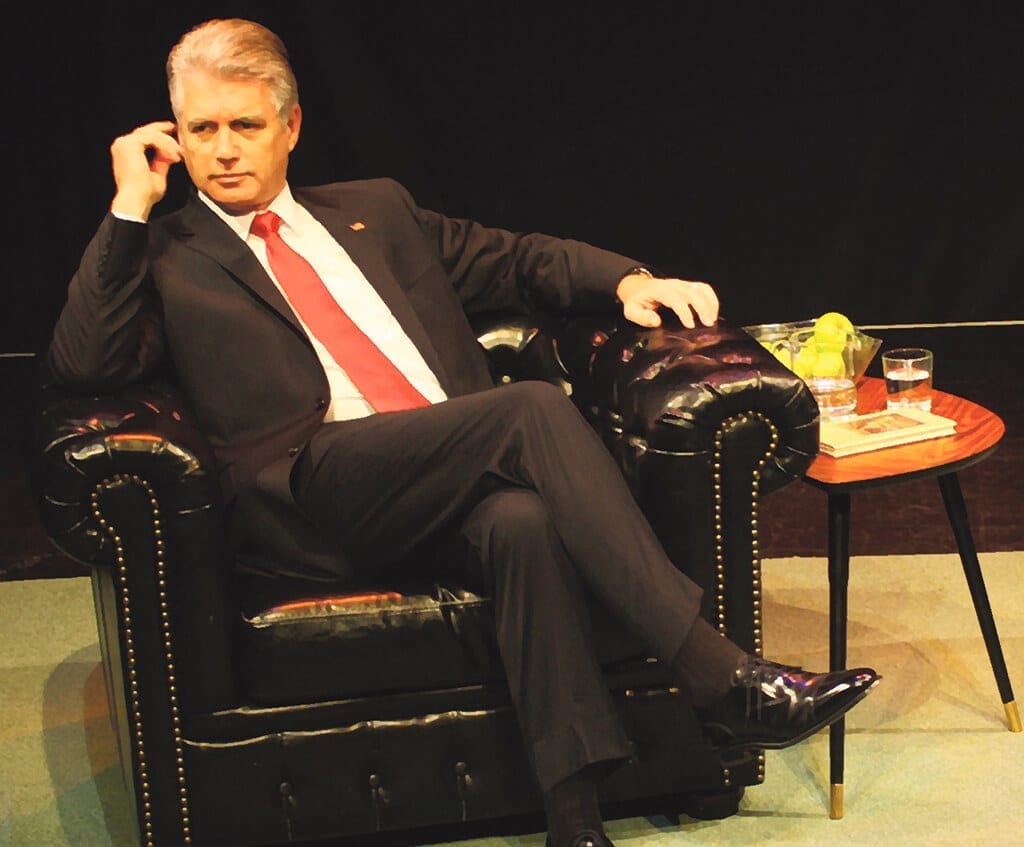History says, Don’t hope
On this side of the grave,
But then, once in a lifetime
The longed-for tidal wave
Of justice can rise up
And hope and history rhyme.
An often quoted passage from Seamus Heaney’s The Cure at Troy: A Version of Sophocles’ Philoctetes is used as the stimulus to this inner monologue of Former President and maybe soon to be First Gentleman of the U.S.A. Bill Clinton. He himself quoted it in his remarks to the community in Londonderry in 1995 during the Northern Ireland Peace Process. A recount of his childhood, youth personal life and political career and a dramatic plea for tomorrow’s politics.
For a bit of background: Philoctetes takes place during the Trojan War; it describes the attempt by Neoptolemus and Odysseus to bring the disabled Philoctetes, the master archer, with them to Troy. Philoctetes had been abandoned on the island Lemnos with a suppurating wound that would not heal, by Odysseus 10 years back on the way to Troy. A seer foretells that they will need him and the bow of Heracles to win the war. The task is not easy, as Philoctetes bitterly hates Odysseus and the Greeks for leaving him there. Neoptolemus acts as the young ambassador to Philoctetes and Hercules on the beach is the deus-ex-machina that resolves the conflict between the Greeks and Philoctetes. Heaney’s The Cure at Troy was inspired by an exploration of the tension between an individual’s need to be true to himself and his feeling of loyalty to his group/cause.
Bill Clinton feels that he has had to play all the roles in his eventful life and political career. But he has been most proud when he had to be Hercules on the beach, when he was the one above the conflict; the one trying to convey the bigger picture; the one serving the bigger good. He wants to be Hercules again and he wants to influence his wife to ride at the crest of the tidal wave of justice and hope that will topple unfettered capitalism and state powers.
Bod Paisley’s performance is energetic and absorbing; he carries his role with aplomb and gives us a realistic portrait of Clinton, avoiding the trappings of an outright imitation. The text itself, slightly long-winded and convoluted towards the end is vivid, realistic and peppered with witty and humorous one-liners. One could argue that it portrays Clinton only in a complimentary, slightly rose-tinted hue; but the counterargument would be that it is supposed to be an inner monologue and people do tend to rationalise and gild their actions. Choose whichever works best for you. Though, I have to say I did find all his enthusiasm about Bernie Sanders unconvincing by any measure of imaginary depiction of Bill Clinton.

